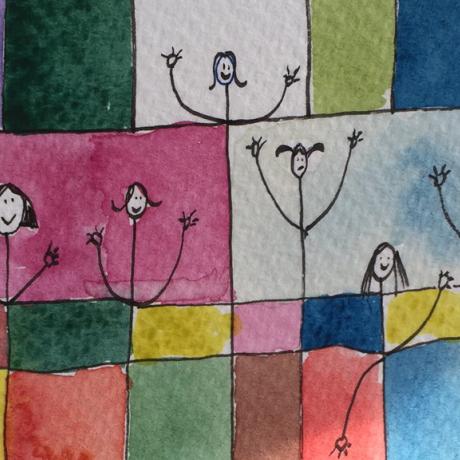Using Creative Interventions to Engage Parents in Child Treatment
Using Creative Interventions to Engage Parents in Child Treatment
3 CEs for NYS LCATs, LCSW, LMSW, LMHC
Taught by: Nadia Jenefsky, MPS, LCAT, ATR-BC
Tuesday, June 20, 2017, 6:00 - 9:00
Location: Art Spa, 190 North 10th Street, Suite 301, Williamsburg, Brooklyn 11211
$90 - Includes all art supplies
Subject of course:This 3 hour (3 CEs) workshop will provide clinicians working with children with a framework for increasing productive engagement from parents, in order to support and enhance the child's course of treatment. Specific creative interventions that the therapist can use with parents, as well as creative interventions that parents can use with their children to support the treatment, will be explored.
Description of course activity content: The curriculum will be taught experientially through art-making, case presentation, and group discussion. Transference and countertransference issues as they relate to the therapist’s triangular relationship with the child, and his/her parents, will be explored. Creative interventions to use to engage parents, as well as evidence-based parent-child treatment modalities will be provided.
Topics covered will include:
- Building rapport and alliance with parents.
- Helping parents understand what we creative arts therapists do and why we do it
- Motivating parents to be active participants in their child’s treatment
- Teaching parents skills that support the work happening in therapy
- Increasing insight into parents' own contributions to presenting problems
- Managing the dual role of parents in treatment as co-therapists as well as co-patients.
3.0 learning contact hours
5:50-6:00 Registration. Tea provided.
6:00 - 7:00 Presentation, hands-on projects to demonstrate and practice skills
7:00-7:30 Breakout groups to practice skills
7:30 - 8:45 Group discussion and processing of demonstration, role play and experientials
8:45- 9:00 Evaluation forms and CE certificate distribution
Teaching methods
1. Lecture and case presentations to illustrate parental involvement models in treatment of the child.
2. Hands-on art directives to identify transference and countertransference material in working with parents.
3. Group discussion and role-play to identify and practice effective creative interventions in addressing parental dynamics.
The learning objectives of the course.
- Upon completion of the course, participants will be able to:
- Identify three (3) common roles parents play in the treatment dynamic when seeking therapy for their child.
- Describe responses that occur when the therapist engages with parents; two typical parent responses (transference) and two typical therapist responses (countertransference).
- List 3 different creative interventions therapist can use to help parents overcome resistance or problematic interference with treatment.
- List 3 different creative interventions therapist can teach parents to use with their children to support their child’s treatment goals.
- Describe two (2) ways in which the parent can benefit from treatment as a co-patient, and two (2) ways in which treatment can be enhanced by parents’ participation as co-therapist.
New York Creative Arts Therapists PLLC is recognized by the New York State Education Department’s State Board for Social Work as an approved provider of continuing education for licensed social workers #0275, and is recognized by the New York State Education Department’s State Board for Mental Health Practitioners as an approved provider of continuing education for licensed creative arts therapists #CAT-0026 and licensed mental health counselors (pending #MHC-0065). New York Creative Arts Therapists PLLC may offer NYSED approved clock hours for events or educational programs that have been approved by the department. Sessions for which NYSED-approved clock hours will be awarded are identified on our website

Drena Fagen, LCSW-R, LCAT
